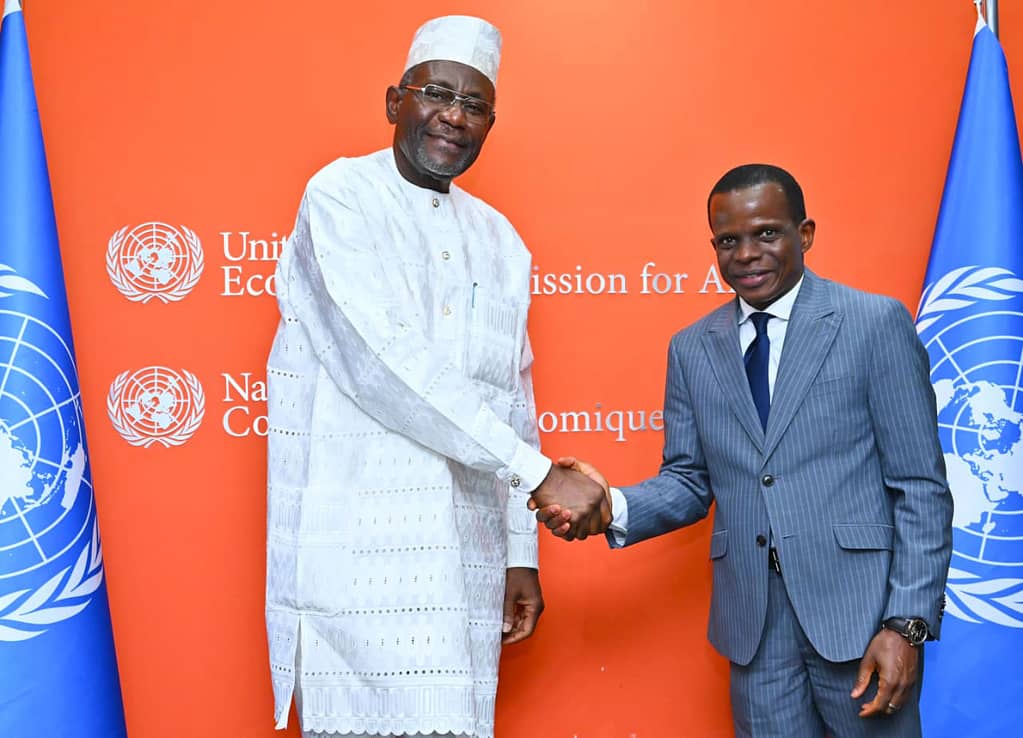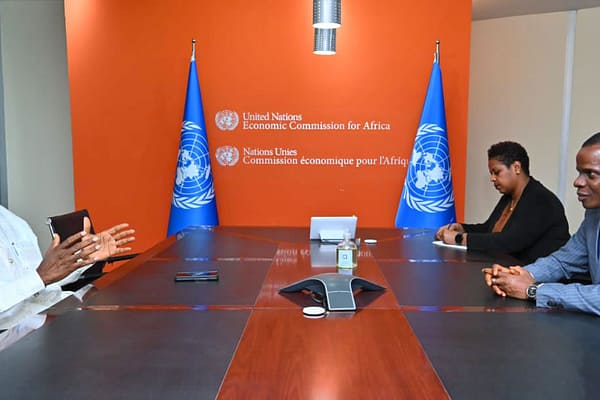In Addis Ababa, Ethiopia, Mr. Enselme Gouthon was received by Mr. Antonio Pedro, Executive Secretary of the Economic Commission for Africa (ECA), in his dual capacity as President of ACRAM and Vice-President of the Council of the International Coffee Organization.
The two men discussed the future of coffee in Africa: a path to economic growth and sustainable tourism.
The economy of their exchanges
ECA recognizes the need for collaboration with various entities to create positive change in the coffee industry. This article explores the main points of this exchange on the future of coffee in Africa, focusing on macroeconomic stability, sustainable industrialization, climate action, energy transitions and the role of coffee in promoting tourism and cultural experiences.
Macroeconomic stability and sustainable industrialization
The first pillar for the future of coffee in Africa lies in achieving macroeconomic stability and sustaining funding. Stable economic conditions provide an environment conducive to the prosperity of the coffee industry. Furthermore, sustainable industrialization and trade are essential for economic growth and job creation. African nations, like Equatorial Guinea, want to revitalize their coffee sector by seeking partnerships with countries like Costa Rica, known for their expertise in specialty coffees.
Market share and premium price
Climatic conditions play an important role in the production of specialty coffees, resulting in higher prices. By engaging in strategic conversations with major coffee producers like Brazil, African nations can explore ways to effectively control the supply of specialty coffees. These conversations should aim to keep prices reasonable while avoiding the creation of cartels. In addition, sharing knowledge and exchanging experiences between coffee-producing countries, such as El Salvador and Costa Rica, can help African countries optimize their coffee industry, especially in small towns with limited resources. .
Strategic intelligence and added value
To support the coffee industry in Africa, it is essential to have access to strategic intelligence and information on global engagement. ECA solicits information from organizations producing reports and analyzes on coffee production, market trends and consumption. This knowledge can empower African member states to make informed decisions and improve the process of adding value. By adding value to their coffee products, African countries can access higher value-added markets and increase their sources of income.
Promote coffee culture and tourism
Apart from economic growth, coffee can play an important role in promoting tourism in Africa. The diversity of landscapes and the natural beauty of the continent offer immense potential for tourism development. However, one of the challenges facing the tourism sector is the limited tourist experience beyond nature-based attractions. To overcome this, African nations must focus on developing a robust tourism market for Africans themselves.
Understanding African tourists and diversifying the experience
African countries need to better understand the preferences and interests of African tourists to adapt their tourism offers accordingly. By diversifying the tourist experience, countries can attract a wider range of visitors. Ethiopia is an exemplary case, with its rich coffee culture. Traditional coffee ceremonies and Ethiopian cultural practices allow tourists to better understand the country’s heritage, traditions and vibrant culture.
The future of coffee in Africa is extremely promising for economic growth, sustainable development and the expansion of tourism. By prioritizing macroeconomic stability, sustainable industrialization and strategic collaborations, African nations can capitalize on high specialty coffee prices. Additionally, investing in strategic intelligence, added value and tourism experiences will attract domestic and international visitors, boosting local economies and cultural exchanges. By harnessing its coffee potential, Africa can pave the way to a prosperous and sustainable future.
Created in 1958 by the Economic and Social Council (ECOSOC) of the United Nations, the ECA is one of the five regional commissions of the United Nations. Its mandate is to support the economic and social development of its Member States, to encourage regional integration and to promote international cooperation for the development of Africa.


